Ex-President Goodluck Jonathan is back in the news — and, of course, it is not pretty. He has been summoned by a committee of the house of representatives over the oily OPL 245 affair. The oil prospecting licence was initially awarded to Malabu Oil and Gas Ltd in 1998, revoked in 2001, awarded to Shell same year, and, in 2006, revoked again and returned to Malabu following an out-of-court settlement. Things went quiet until Jonathan finally restored the block to Malabu in 2010. Then, in 2011, he approved Malabu’s re-sale of the OPL to Shell and ENI. And they thought it was the end. But it was just the beginning.
In one paragraph, I have summarised a controversy that has been running for nearly 20 years. If only it were that simple! Actually, between 1998 and 2017, so much has happened that an encyclopaedia-sized book would be required to capture the twists and the turns. There are too many questions about the Malabu matter. We have been awarding oil blocks for 60 years, so why is OPL 245 so special? Next door to OPL 245 is OPL 246 awarded to Gen. Theophilus Danjuma’s South Atlantic Petroleum (Sapetro) Ltd by the same Gen. Sani Abacha around the same time. Danjuma’s OPL 246 was not revoked and re-awarded, so why is OPL 245 full of so much trouble?
Let’s tackle the first mystery. The OPL was awarded to Malabu in April 1998. Who were Malabu’s owners? Mohammed Sani (50% of the shares), Kweku Amafegha (30%), Wabi Hassan (20%) and Mohammed Aliyu Jabu (nil). Good? Not so good. “Kweku Amafegha”, it turned out, was not a Ghanaian but a Nigerian, Chief Dan Etete, who, you may wish to know, was the minister of petroleum resources who awarded the oil block to Malabu in the first place! Mohammed Sani is actually Alhaji Mohammed Sani Abacha, son of the then head of state. Wabi is the wife of Alhaji Hassan Adamu, Nigeria’s ambassador to the US at the time. Making sense?
Thanks to Premium Times, the investigative online newspaper that did the exposé in 2012, we were also able to know that Malabu’s registered address only existed in the skies and beyond. Gen. Abacha died suddenly in June 1998 and Malabu’s world went into a spin. President Olusegun Obasanjo revoked the licence in 2001 and sold it to Shell. This time the signature bonus had risen to $210m, up from the concessionary $20m for home-grown companies under which Malabu, Sapetro and Mrs Folorunsho Alakija’s Famfa Oil were awarded oil blocks previously. Malabu immediately went to court to challenge the award of OPL 245 to Shell.
Advertisement
Having acted as the technical partner to Malabu in the deal, Shell itself was playing a dangerous game. Did Shell get a secret nod from the federal government to come for the disputed block? It seemed so. Malabu, in the meantime, had also petitioned the house of representatives, who declared that the block should be returned to Etete’s company. Obasanjo’s government reached an out-of-court settlement with Malabu and agreed to return licence, as conveyed in a December 2, 2006 letter signed by Dr. Edmund Daukoru, then minister of state for petroleum resources. Everything went calm under President Umaru Musa Yar’Adua, who came to power in 2007.
In the meantime, Shell had headed to the International Centre for Settlement of Investment Disputes (ICSID) for arbitration in 2006. It asked for $2bn from the Nigerian government for revoking the licence having committed the IOC to go ahead and “derisk” the oil field. Pronto, the out-of-court settlement between Malabu and the federal government went back on the danger list. It was as if the oil block was cursed. There was no fatigue though, as Malabu revved up its machine as soon as Jonathan came to power in May 2010 after Yar’Adua’s death. The 2006 settlement was then consummated and Malabu cuddled OPL 245 again.
What happened next? Shell withdrew the case in arbitration, and, along with ENI, approached Malabu with an offer to buy the block. There must be something irresistible about OPL 245! Mystery partially solved: OPL 245 holds proven reserves of 9.3bn barrels of crude oil and enormous gas reserves — enough to power the whole of Africa for seven years non-stop, said an analyst. No wonder, Shell and ENI would never let go and would stop at nothing to get it. After a series of meetings, with choice wine providing some tonic, Malabu agreed to sell the field to them for $1.1bn. Thank you very much. It was nice doing business with you. Meet you in Las Vegas. Cheers!
Advertisement
The IOCs then paid about $1.3bn into an FG-designated escrow account: $1.1bn for Malabu and $210m to the federation as “signature bonus”. And another mystery unfolded: by some magic, Mohammed Sani was no longer a Malabu shareholder! Apparently, while he was in detention under Obasanjo, his name had been wiped off the records at CAC. He made spirited attempts to get the government to help him take his own cut from the $1.1bn pie, but Mr. Mohammed Bello Adoke, then attorney-general, reportedly told him it was a Malabu in-house dispute to be resolved by the shareholders. Abacha felt short-changed; after all, the oil block was actually his own!
EFCC has re-opened the Malabu file after initial investigations yielded nothing concrete. The agency recently announced plans to seek the extradition of Adoke to face trial for giving federal government the legal advice that “short-changed” Nigeria in the Malabu mystery. Adoke, who went on self-exile in 2015 alleging that he was being targeted for assassination, has always maintained that the legal advice he gave Jonathan saved Nigeria from paying a fine of $2bn that would have been awarded to Shell at ICSID after the revocation of the oil block by the Obasanjo government in 2006. He denies receiving a bribe, and maintains that he deserves a medal, not handcuffs.
Adoke further denies authorising the transfers to Malabu: he said he only gave legal advice and the president approved. As far as Adoke is concerned, he is being scandalised by people sympathetic to Abacha, who, he said, is angry that he did not share in the Malabu windfall. Adoke is also alleging that those who had grouses against him when he was AGF are now lining up behind Abacha to “destroy” him. Abacha has gone to court, supposedly on the prompting of powerful people in the Buhari administration, seeking to retake OPL 245. There are now several cases in court over the oil block, meaning there is a limit to the comments I am allowed to make here.
However, there is this belief that Nigeria “lost” $1.1bn in the Malabu deal. This is an error. The block belonged to Malabu by virtue of the 2006 settlement agreement reached with Obasanjo. Legally, when you sell something, it is no longer your own! Nigeria has already collected the signature bonus. Aside the bonus, government will further make money from oil mining (when production starts) through (1) petroleum profit tax, which could be as high as 85%, and (2) royalties. Note that while Malabu sold its entire 100% interest for $1.1bn, Sapetro sold parts of his block for over $2bn. It’s not strange for licensees to sell all or part of their interests.
Advertisement
Nevertheless, Malabu was clearly built on fraud and deceit from the beginning. That is where the whole mess started. When Danjuma was awarded his licence, he did not call himself “Nkrumah” or “Theophilus Yakubu”. His real name was there. Etete obtained his own licence under false pretence. Although Malabu made a part-payment of $2m towards the signature bonus (Shell was to pay the balance), the crisis was a setback for Nigeria. We have has lost significant revenue. All the same, having entered into a court-ordered settlement agreement in 2006, Nigeria was bound to return the oil block to Malabu. If you don’t appeal a bad judgment, you have to obey it.
Finally — and this is what I consider to be the real issue — there is devil in the detail. The way Malabu immediately distributed the proceeds from the sale aroused suspicion. Allegations of an elaborate bribery scheme led to the global attention OPL 245 attracted. Shell and ENI can claim they paid directly to the federal government, but new evidence obtained by Global Witness, an international NGO, suggests the IOCs knew what they were doing. Curiously, though, Shell and ENI are not being investigated by Nigeria. In fact, we are still doing heavy business with them and there is no chance that they will ever be asked questions. Mystery.
AND FOUR OTHER THINGS…
BADOO BONDAGE
You must have heard about the gruesome killings going on in Ikodoru, Lagos state. The ritualists invade people’s homes in the middle of the night, bludgeon sleeping families to death and then gouge out their eyes, slash their tongues and remove foetus from pregnant women for ritual purposes. The cultists, known as Badoo, allegedly work for traditional rulers and their chiefs. Ikorodu residents lament that when the suspects are arrested and handed over to the police, they quickly regain their freedom. This suggests that the boys are working for “big men” who are clearly above the law as communities bleed to death. That is the way we are in Nigeria. Jungle.
Advertisement
CITIZEN ANYANSI
On May 31, 2017, Mr. Sunday Anyasi, a retired assistant superintendent of police, was abducted on a night bus from Abuja to Issele-Uku, Aniocha north LGA, Delta state. The 58-year-old had gone to Abuja to process his pension entitlements at PenCom and was returning home when the bus was waylaid. The matter was immediately reported at the Issele-Uku police station. They promised to investigate. And that was, effectively, the end of the matter. The story is that there is no money to conduct investigation, and so the retired policeman who spent 35 years of his life serving his country remains accounted for till this day. That is the way we are in Nigeria. Helpless.
Advertisement
POINT OF ORDER
Federal lawmakers are increasingly getting Nigerians irritated. After mutilating the appropriation bill and passing a budget that is out of tune with the original goals and plans, they are hell-bent on holding the executive to ransom in an unnecessary show of power. I sincerely hope they will call themselves to order and stop this war-like approach to issues. While I know the executive has been making some offensive pronouncements on the confirmation of nominees as well as budget distortion, I do not think two wrongs make a right. As things stand, Nigerians see the lawmakers as self-centred, and the court of public opinion is not something to ignore. Sensitivity.
Advertisement
YAM FESTIVAL
We recently celebrated a new “yam festival” — that is, a Nigerian farmer named Pa Audu exported 72 tonnes of yam valued at N18m ($57,000) to the US and UK. It’s a landmark, especially as we continue to talk about diversifying the source of forex to break loose from petrodollars. But, as someone noted in a Facebook post, we need to think deeper about how we can get more value by processing the yam. According to him, if the same volume of yam is processed to pharmaceutical grade starch — the major component of tablets and capsules — the return will be at least N102m ($323,000). That’s some N84m ($266,000) more than the raw export value. Commonsense.
Advertisement
3 comments

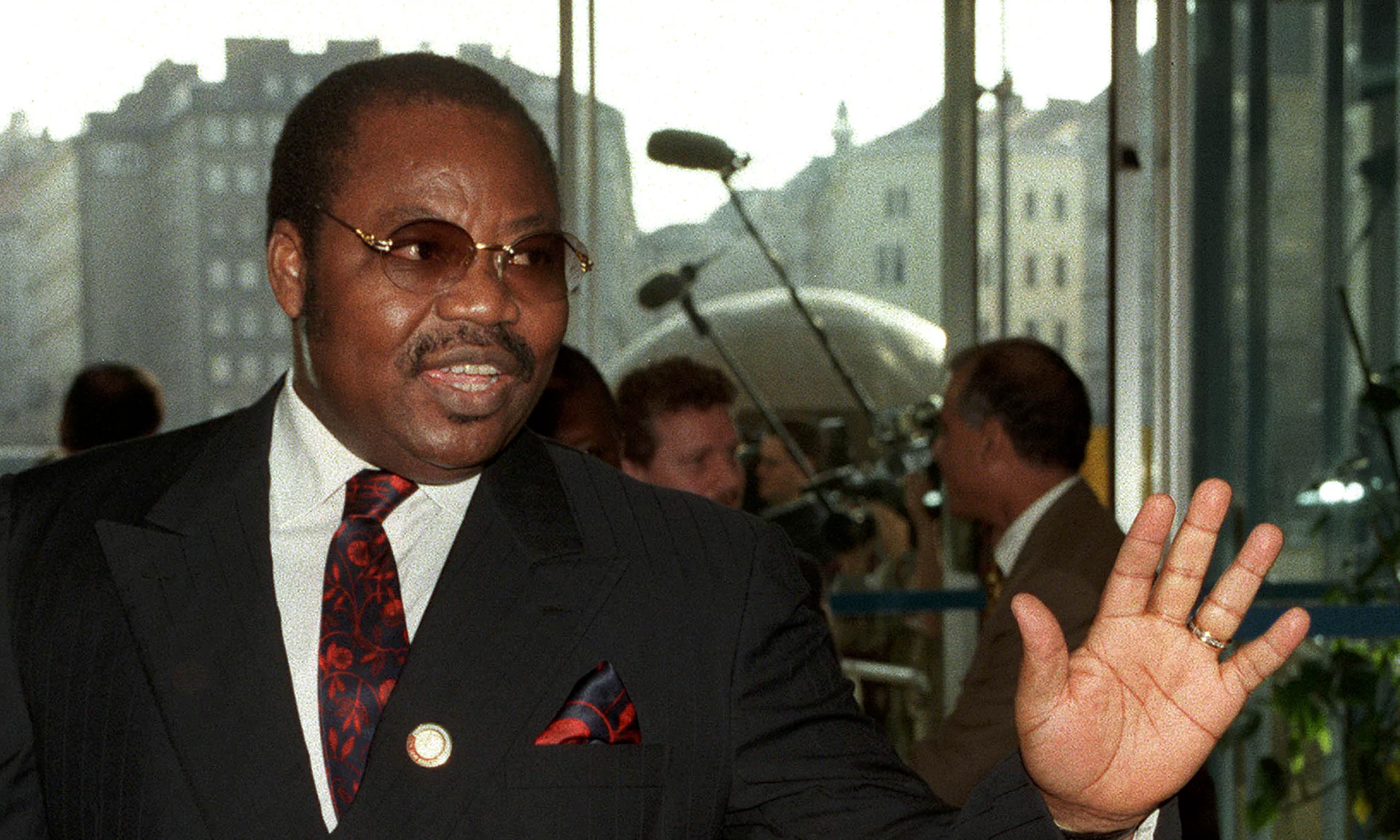

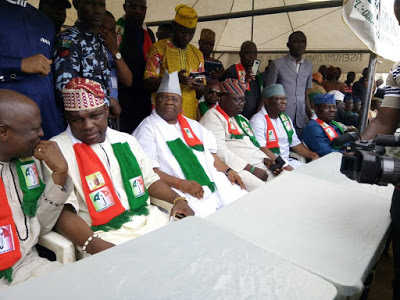
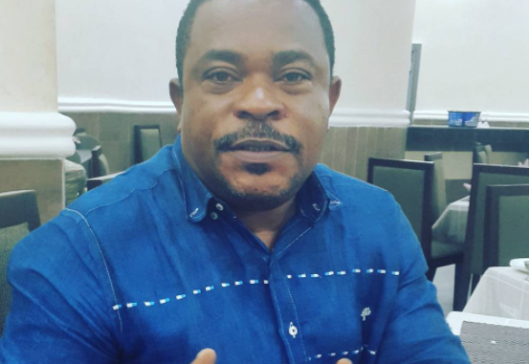
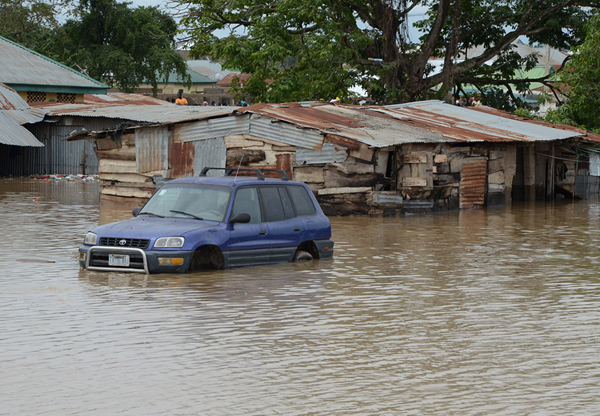
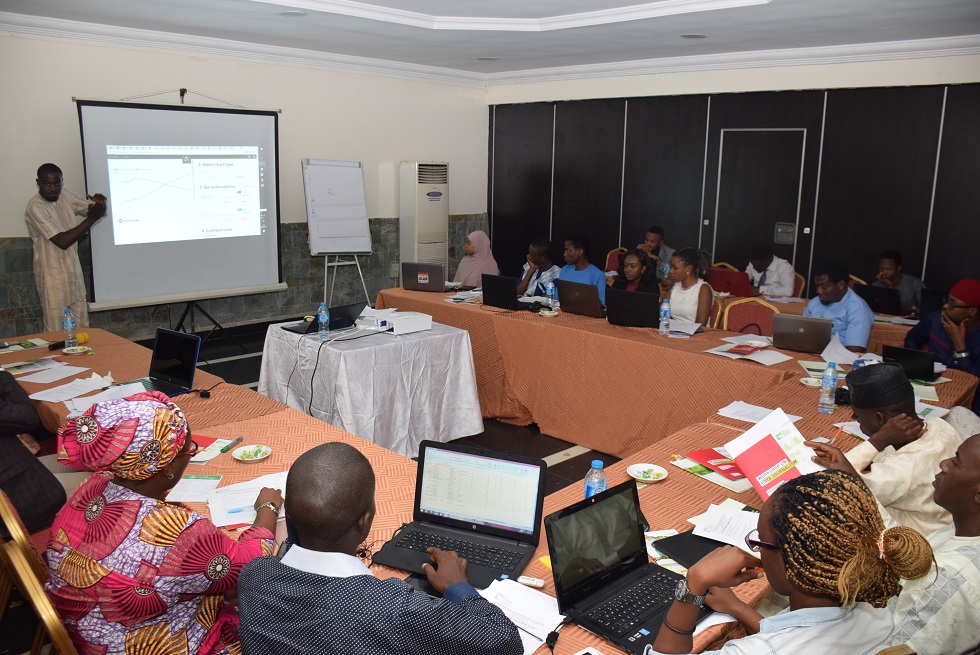
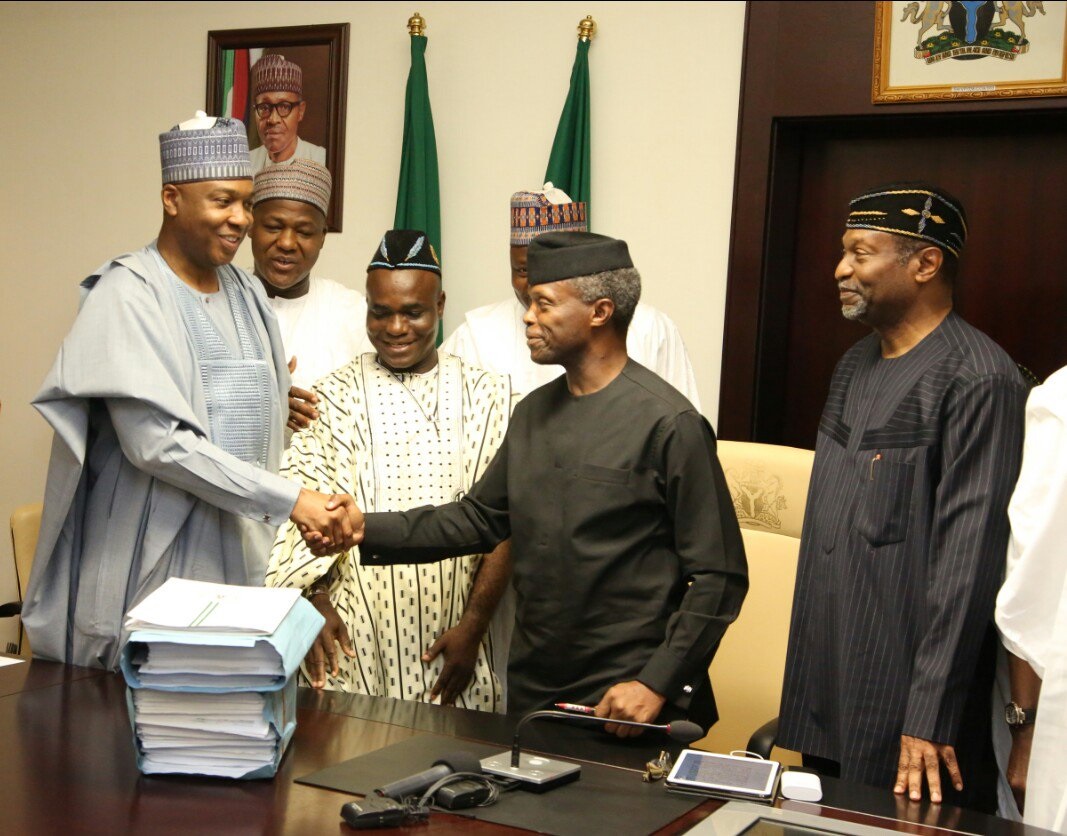
Dear Simon,
This is critical thinking, incisive, brilliant and objective journalism and not the kind of yellow journalism from PT whose main aim is to malign Jonathan and other officials that served under him. PT has suppressed all the facts on malabu which you have brought to public domain through this incisive and brilliant write up.
Like you said South Atlantic Petroleum of TY Dajuma benefited from the same Malabu patronage and walk away without all these inquisitions. So also is Alakija’s Famfa oil of OML 127 (Agbami Field) where she ceded about 40% stake to Chevron for undisclosed amount of money. Sapetro sold about 40% to CNOOC, the Chinese state hydrocarbon giant for US$2.268billion in addition to about US$800million paid by petrobas. All these moneys were not paid to Govt but went
to private individuals. Why is Malabu different?????
Some of the critical questions/issues that can be distilled from your analysis are:
1. Was the Settlement Agreement (SA)of November 2006 midwifed by then President Obasanjo which was reduced to a consent judgement of the Federal high court subsisting and binding on the Federal Government at the time of Jonathan’s intervention???
2.What is the effect of the SA of 2006 and the subsequent letter of 2nd december from Edmun Daukoru, then Minister of state for Petroelum resources conveying the full restoration of OPL 245 to Malabu???
3. Having restored OPL 245 to Malabu as far back as 2006, is the block still a public asset belonging to Nigeria???
4. Who authorised Shell to derisk the OPL 245 Block that formed the fulcrum of its claims in arbitration proceedings in Washington?
5. Can the FGN be a complainant after taking benefit of USd210million signature bonus?? Who then is EFCC working for??? Why has EFCC not commenced criminal investigation against Mohammed Abacha for violating the terms of Decree 53 which mandated them to disclose all their stolen assets???
6. Can President Jonathan who is the ultimate authority under the presidential system of government that we practice issue directives/approval to settle the Malabu dispute in the light of court judgement which is binding on all persons and authority?//
7. Is Malabu not a commercial dispute among shareholders in the light of the several letters written by Mohammed Abacha and his Lawyers; A. U Umar and Co???? The letters are in public space
8. Dis Shell withdraw it claims in excess of US$2billion against FGN in compliance with the Resolution Agreement?
9.Whether having sold its interest in OPL 245 to Shell and ENI, Malabu was not entitlled to the proceeds of its sale of the block just like other beneficiaries like TY Danjuma(Sapetro) and Alakija of Famfa?/
These are questions begging for answers.
PhD. This literature just deserves that. An uncle of mine had a serious argument with with me over the ‘Malabu Oil deal. He said “it is ‘Malabo’ how can a small boy like you ague with me” This literature, I hope, will certainly educate him better. That’s by the way. I always asked myself anytime issue of corruption in Nigeria comes alive “Will Nigeria survive a century?” If at less than 57, a monumental corruption of this nature happens, what becomes the fate of a country like this at 70, at 80 and at 95? I just think we need a leader. Great nations of the World at a particular time in their history produce exceptional leaders that re-navigate their chequered course. The Nigeria’s experience is most unfortunate and rather blest. From 1960 to date, take it from me or leave it, this country has never produced a leader, rather, it has been succession of one ruler to another. Late SANI Abacha (Rip) came in like a saint, but after his death, the rots he left behind still stenched. Obasanjo came in at the time Nigeria was gasping for oxygen after his immediate successor had looted it blank. Baba, as fondly called, only used the 8 years to rehabilitate himself, settled scores with old friends he had offended and made more ‘billionaires’. This is about the second time I am reading comprehensively about Malabu oil deal and I think those in authority should also read and make best of rational judgement. Nigeria should not be left in the hands of the revolutionaries that will come and take advantage of the ineptitudes of those in authorities and throw the entire nation into chaos in the name of saving the country from the grasp of these dishonourable money mongers called businessmen. Judgement!!!
This is investigative journalism at its peak. As someone directly involved in the case, I commend your efforts and honesty. I believe shell messed up it’s case by choosing to buy from Malabu sans the majority shareholder who had put up several caveat prior to the sale. The caveat notwithstanding, Shell was in position to know the rightful shareholding of malabu as it was Malabu technical partner from onset. The issue here is can Shell be assumed to bought rightly without the lawful consent of the 50% shareholder. It lawyers should honestly answer this question. The matter is simple. Shell should admit it mistake and go into settlement with the 50% shareholder.